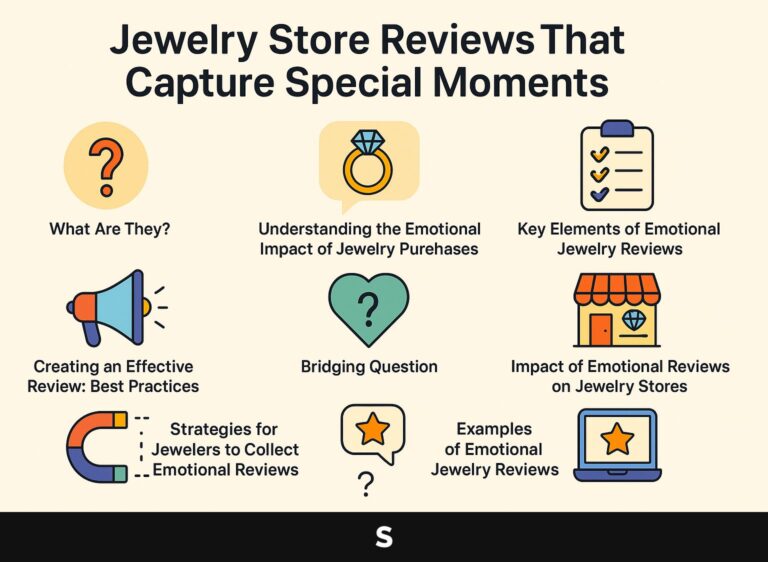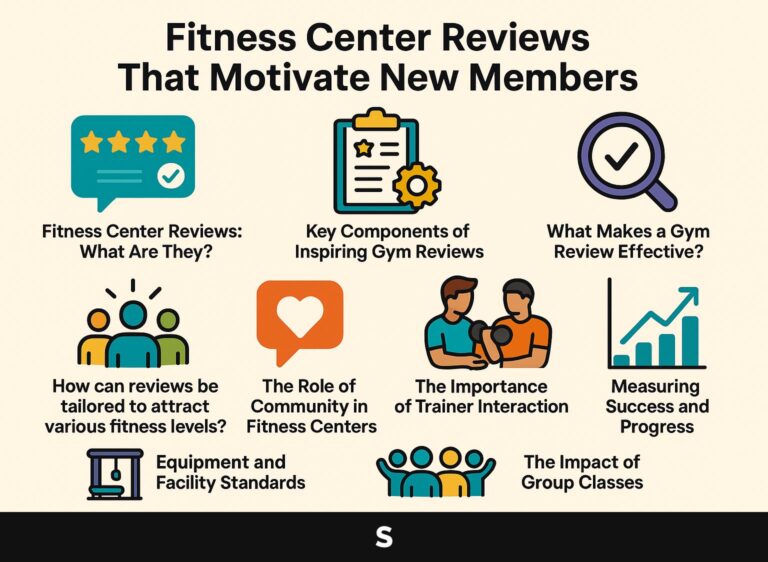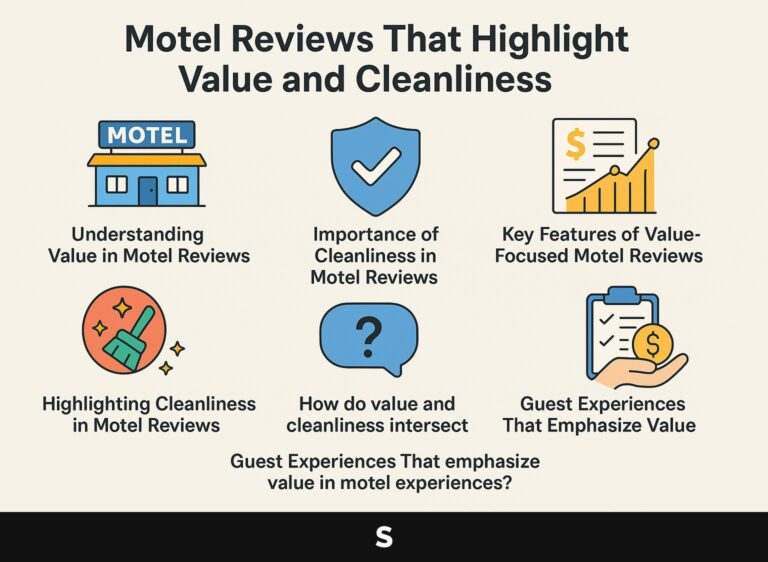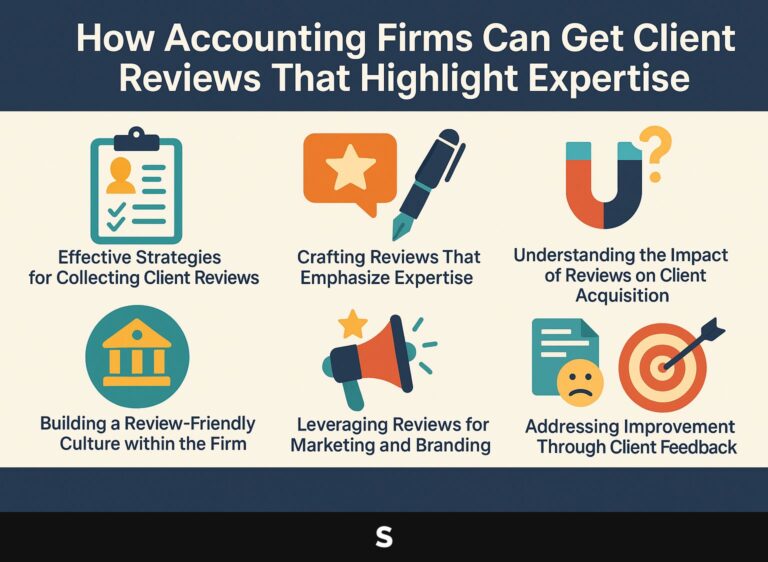Mortgage Brokerage Reviews That Simplify Home Buying
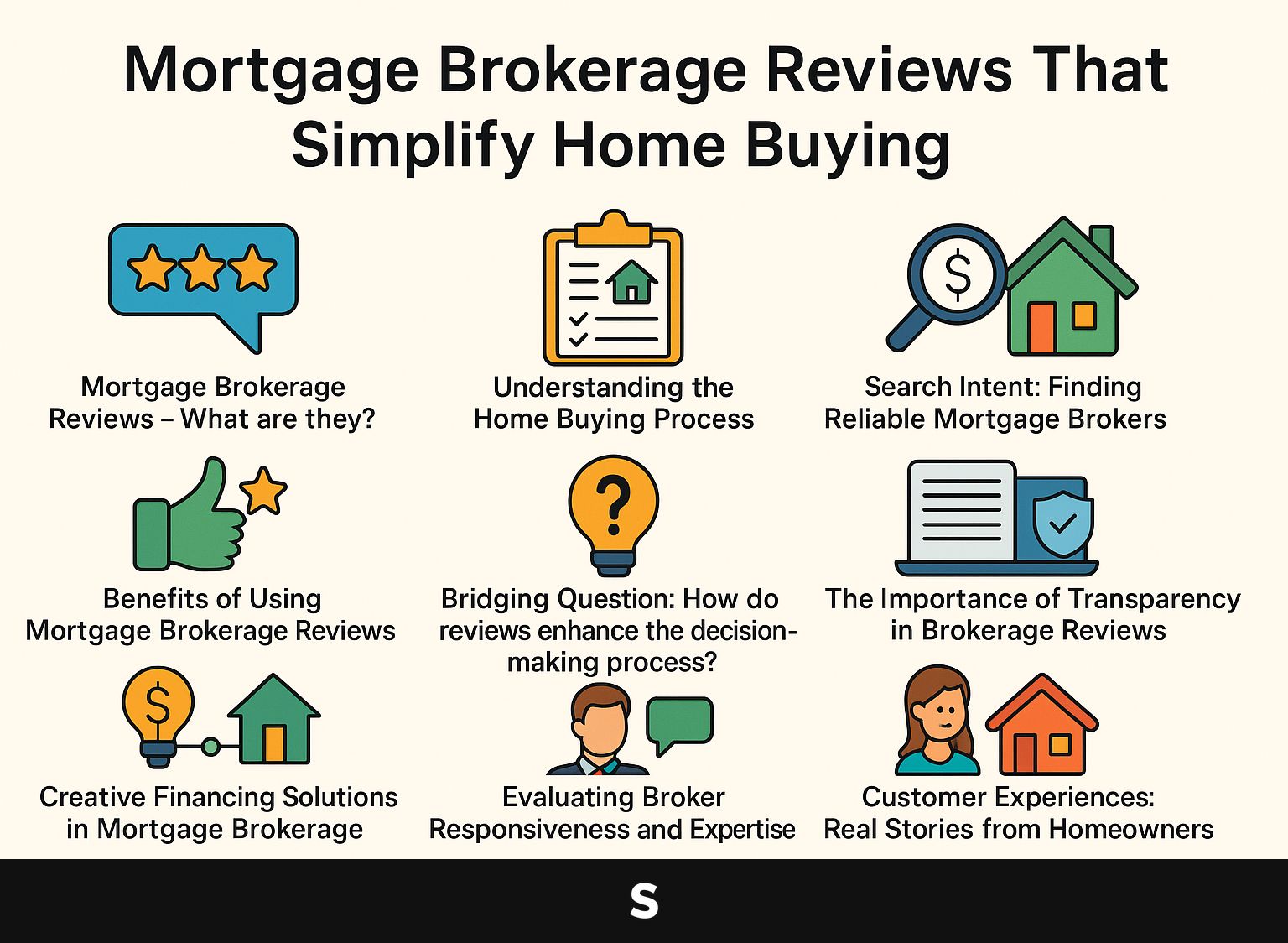
Finding your way through today’s busy housing market can be stressful, especially when looking for the right mortgage broker. If you’re looking into companies like Loan Factory, C2 Financial Corporation, or Loan Pronto, it’s important to read broker reviews. This article makes buying a home easier by showing how thorough brokerage reviews can help you decide, point out useful information, and find the best loan options. Let’s work together to help you buy a home.
Key Takeaways:
- Reviews of mortgage brokers offer useful information about how well a broker does their job and can make buying a home easier.
- Transparency in reviews builds consumer trust and helps in finding reliable mortgage brokers.
- A well-reviewed broker can offer creative financing solutions, expert advice, and negotiate for the best rates on behalf of the buyer.
- Mortgage Brokerage Reviews – What are they?
- Understanding the Home Buying Process
- Finding Reliable Mortgage Brokers
- Benefits of Using Mortgage Brokerage Reviews
- How do reviews help people make decisions?
- Clarity in Brokerage Reviews
- Creative Financing Solutions in Mortgage Brokerage
- Assessing Broker Quickness and Knowledge
- Customer Experiences: Real Stories from Homeowners
- Fighting for the Best Rates: Broker Negotiation Tactics
- Final Thoughts on the Role of Reviews in Home Buying
- Frequently Asked Questions
- 1. What is the importance of mortgage brokerage reviews when buying a home?
- 2. How can mortgage brokerage reviews simplify the home buying process?
- 3. What should I look for in mortgage brokerage reviews?
- 4. How do mortgage brokerage reviews on Spokk.io help brokers?
- 5. Are all mortgage brokerage reviews on Spokk.io positive?
- 6. How can I leave a mortgage brokerage review on Spokk.io?
Mortgage Brokerage Reviews – What are they?
Mortgage brokerage reviews help buyers understand how brokers perform, their skills, and how happy customers are in a tough real estate market.
1. How do mortgage brokerage reviews differ from traditional reviews?
Unlike traditional reviews, mortgage brokerage reviews focus specifically on the unique aspects of financial services, such as responsiveness, loan options, and rate negotiation skills, which are critical in home buying.
For instance, assess a broker’s responsiveness by checking their average response time to inquiries-ideally within 24 hours. Check their skills by reading client reviews that talk about loan options designed for personal financial needs. Evaluate the variety of loan products offered; brokers with a diverse range often provide better options.
Tools like RateScout let you quickly compare rates from different brokers so you can find the best deal for your needs.
2. What criteria are essential for evaluating a mortgage broker?
Key criteria for evaluating a mortgage broker include responsiveness, knowledge of various loan programs, negotiation skills for competitive rates, and positive customer reviews.
When assessing responsiveness, look for brokers who communicate clearly and provide timely answers, ideally within a few hours.
Check how knowledgeable they are by inquiring about particular loan types, like FHA or VA loans, and how familiar they are with these choices. For negotiation skills, inquire about recent cases where they secured lower rates for clients.
Look at customer reviews on sites like Zillow or Google to see how happy people are, paying attention to both the average score and detailed comments about their service. This thorough evaluation will help you find a broker that meets your unique needs.
Understanding the Home Buying Process
Knowing how the home buying process works is important for people looking to buy a house, as it affects their financial choices and overall experience.
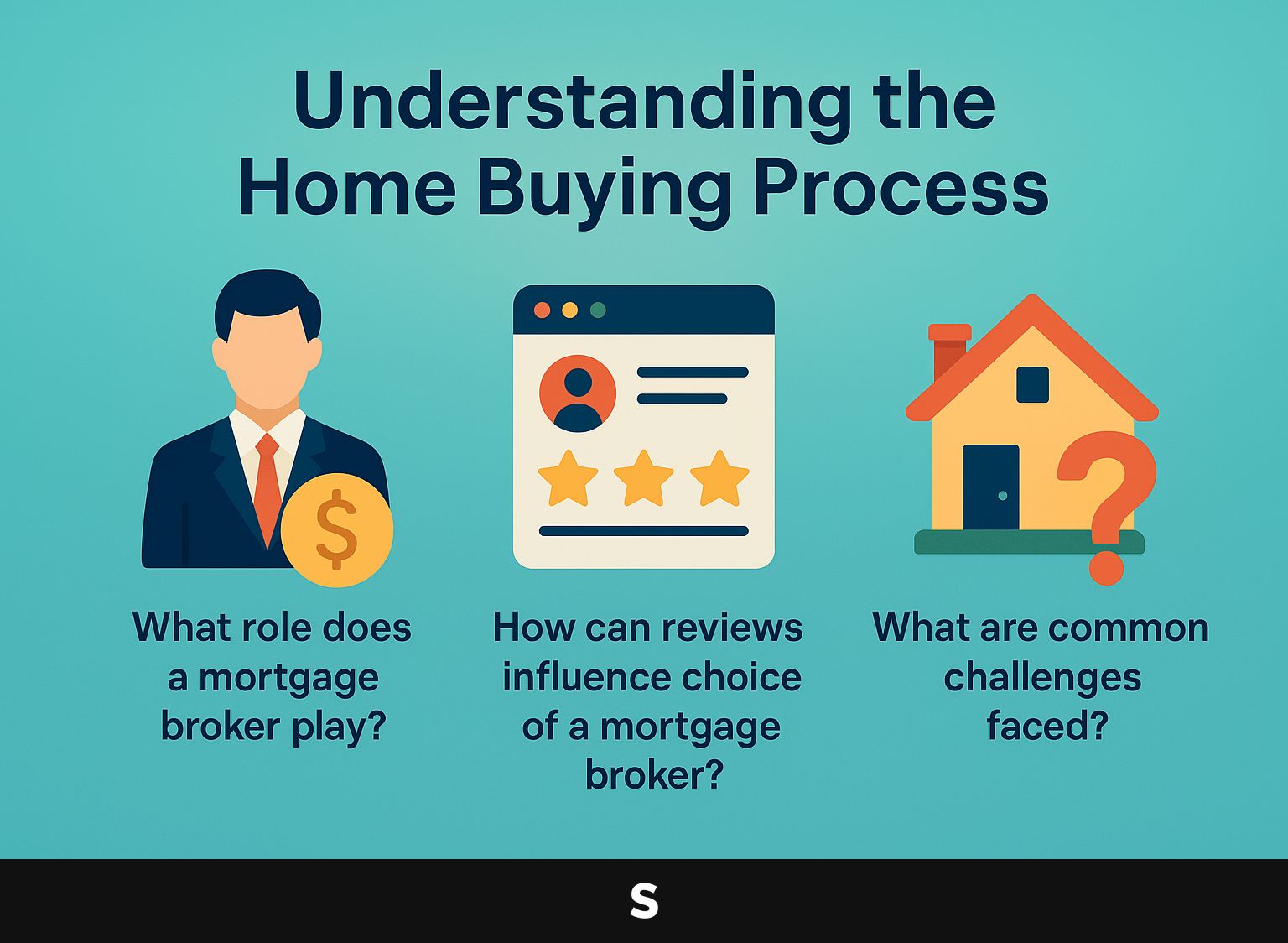
1. What role does a mortgage broker play in home buying?
Mortgage brokers act as intermediaries between homebuyers and lenders, facilitating access to various financing solutions and ensuring that buyers secure the best mortgage rates available.
A mortgage broker’s main tasks are finding different loan options that suit the buyer’s budget, trying to secure favorable interest rates, and giving specific advice during the home buying process.
For instance, they analyze credit scores and help improve them if needed. Brokers often use tools like LoanIQ and Calyx Point to simplify the application process and compare offers from different lenders. Brokers often use their industry links to get lower rates and special offers that individuals might not easily find.
2. How can reviews influence your choice of a mortgage broker?
Reviews significantly influence a buyer’s choice of a mortgage broker by showcasing firsthand consumer experiences, which can highlight a broker’s strengths and weaknesses.
Positive reviews can reassure potential clients of a broker’s reliability and service quality. For instance, look for brokers with consistently high ratings on platforms like Zillow or Google Reviews, indicating satisfied customers.
On the other hand, negative reviews can serve as warnings; read them carefully to identify recurring issues, such as poor communication or hidden fees. Check feedback from different places to help you pick the right mortgage broker.
3. What are common challenges faced during the home buying process?
Typical difficulties in buying a home involve handling complicated paperwork, getting financing, and learning about the many mortgage choices.
To handle these challenges well, start by sorting your documents, such as tax returns, bank statements, and pay stubs. Use a list to make sure everything is covered.
When securing financing, consider working with a mortgage broker who can offer guidance based on your financial profile. They often have access to a range of lenders that can provide better rates and terms.
Educate yourself on loan types, such as fixed-rate and adjustable-rate mortgages, by utilizing online resources or workshops that simplify mortgage concepts. This practical method will make your home buying process smoother.
Finding Reliable Mortgage Brokers
Finding reliable mortgage brokers is important for a smooth home buying process, and reviews can be a helpful resource in this search.
1. What should you look for in a mortgage broker review?
In evaluating a mortgage broker review, look for specific factors such as detailed customer experiences, broker responsiveness, and the overall satisfaction ratings of past clients.
Consider the frequency of mentions regarding critical elements like rate negotiation abilities and the clarity of fee structures.
Quality reviews often provide concrete examples of how brokers handled negotiations, including instances where clients received lower rates than initially quoted.
Notice if the broker was known for quick responses during the application process. These findings can help you decide by identifying brokers who excel in negotiation and communication.
2. How can testimonials simplify your mortgage selection process?
Testimonials can make it easier to choose a mortgage by showing how well a broker does their job and how trustworthy they are, allowing buyers to decide faster.
To make sure testimonials are trustworthy, check for detailed information. Genuine feedback often includes personal experiences, such as how a broker facilitated a unique situation, or mentions of specific loan products.
For example, a client might say, “My broker got me a 3.5% rate for my FHA loan, even with my lower credit score,” which shows their practical skill. Conversely, vague statements like “they were great” should raise red flags.
Evaluating both quantity and quality of testimonials across platforms like Google, Yelp, or the broker’s website will help you discern authenticity.
3. What are red flags to watch for in broker reviews?
Warning signs in broker reviews often involve many complaints about poor communication, unexpected charges, or repeated bad customer experiences.
For instance, if multiple reviews mention delayed responses from customer service, it’s a warning sign about the broker’s reliability. If multiple clients mention surprise costs like account upkeep fees that weren’t clearly explained at the start, it’s a sign of poor openness.
In these cases, consider looking for brokers with strong customer support ratings, like those highlighted on platforms such as Trustpilot or Better Business Bureau, which can guide you toward more reputable choices.
Benefits of Using Mortgage Brokerage Reviews
Looking at mortgage brokerage reviews can be helpful by guiding your decisions and showing you what various brokers provide.
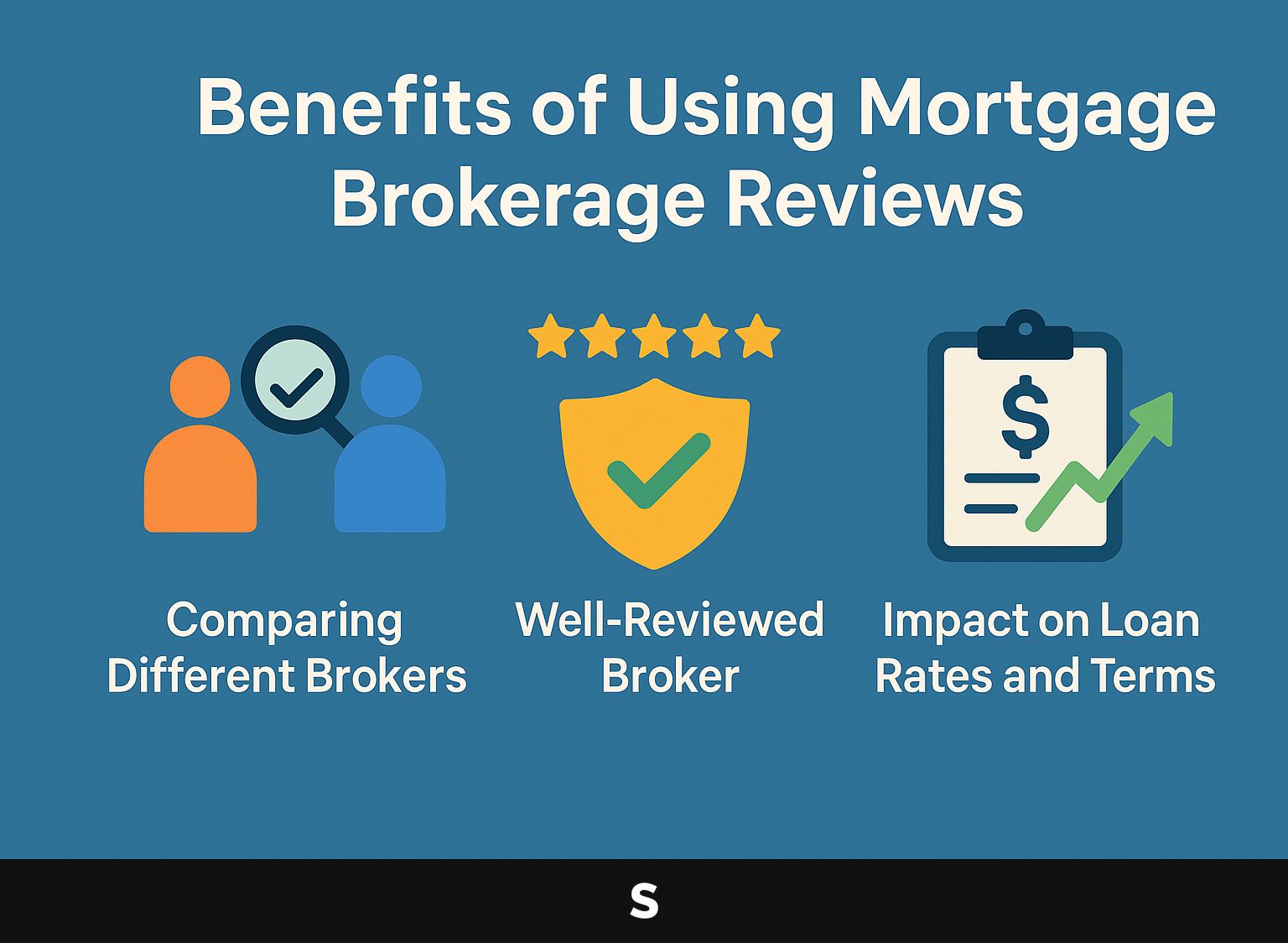
1. How do reviews help in comparing different brokers?
Reviews help people compare different brokers by giving important details about their service quality, how quickly they respond, and the range of mortgage options they provide.
To create an effective side-by-side comparison chart, start by selecting key criteria that matter most to you. Consider loan options, customer satisfaction scores, and responsiveness.
For instance, list brokers A, B, and C across the top of the chart, then fill in each broker’s loan products and average customer ratings. You can use tools like Google Sheets or Airtable to format this chart easily.
Review the chart to identify trends, helping you make a more informed decision about which broker best suits your needs.
2. What are the advantages of working with a well-reviewed broker?
Choosing a broker with good reviews often results in easier transactions, improved customer service, and better loan terms because of their established success.
An experienced broker can get better rates by using their connections with lenders and finding special loan programs that are not commonly offered.
For example, brokers may secure a 0.25% lower interest rate for borrowers with strong credit, translating into significant savings over the loan’s lifespan.
Experienced brokers offer tailor-made help during the process, leading clients through paperwork and legal requirements. This can reduce stress and decrease the risk of costly delays, making the home-buying process easier and more enjoyable.
3. How do broker reviews impact loan rates and terms?
Broker reviews can significantly impact loan rates and terms as brokers with high ratings often have established relationships with lenders, allowing them to negotiate better offers for their clients.
For buyers, it is important to read broker reviews on websites such as Zillow, Yelp, or Google Reviews. Look for brokers with a minimum of 4 stars and at least 20 reviews.
Inquire directly about loan terms they have secured for previous clients, especially for similar loan types. A reliable broker will have positive reviews and show specific examples of how they helped clients lower interest rates or secure better loan terms. This groundwork lays the foundation for favorable mortgage terms.
How do reviews help people make decisions?
Reviews give people the facts they need to choose a mortgage broker with more confidence. When buyers read reviews, they learn about brokers’ trustworthiness, ability to communicate, and how they treat their customers.
For instance, platforms like Zillow and Google Reviews provide a wealth of opinions that highlight pros and cons. This clear information shows potential customers the experiences of previous clients, helping them make wise decisions.
Finding brokers with good reviews can simplify choices, reduce risk, and build buyer trust as they go through the different mortgage options.
Clarity in Brokerage Reviews
Being open about brokerage reviews is important. It helps build trust with customers and assists people selecting mortgage brokers to make informed decisions when purchasing homes.
1. How does transparency in reviews affect consumer trust?
Reviews that share both good and bad experiences help build consumer trust by giving a fair view of a broker’s performance. Brokers can build trust by communicating honestly and interacting sincerely with clients. Organizing regular webinars allows clients to ask questions and creates a feeling of openness.
Answer questions quickly on social media and give clear explanations of how things work, such as fee structures, to make operations easier to understand.
Tools such as Client Feedback Surveys can also help brokers understand client sentiment and address concerns proactively, reinforcing their commitment to transparency.
2. What aspects of the mortgage process should be transparent?
Key aspects of the mortgage process that should be transparent include loan fees, service levels, and broker communication practices, which can significantly affect buyer decisions.
Buyers should expect brokers to provide upfront disclosures of all associated fees, such as origination and closing costs, ensuring no hidden charges emerge later.
Clear communication about loan terms-including interest rates and repayment schedules-is critical. For instance, a broker must explain whether the rate is fixed or variable and what that means in the long term.
Frequent updates during the process build trust. Brokers need to set a schedule that highlights important steps. By being open and clear, brokers can increase buyer trust and happiness.
Creative Financing Solutions in Mortgage Brokerage
Mortgage brokers offer unique financing options to help buyers manage difficult financial situations and buy homes they might not be able to afford otherwise.

1. What are examples of creative financing options brokers might offer?
Funding options include FHA loans for those buying a home for the first time, VA loans for military veterans, and other specific financing plans to suit the different needs of buyers.
Another option is USDA loans, which are designed for buyers in rural areas and require no down payment for qualifying low-income borrowers. Seller financing allows buyers to negotiate directly with the seller, potentially bypassing traditional lenders and speeding up the process.
Lease-to-own arrangements can also be a viable alternative, as they give buyers the option to purchase the property after a specified rental period, often applying some rental payments toward the purchase price.
Each of these solutions can cater to specific financial circumstances and property types.
2. How can brokers tailor solutions to unique buyer needs?
Brokers can tailor mortgage solutions to unique buyer needs by assessing individual financial situations, loan eligibility, and long-term goals to recommend suitable loan programs.
First, brokers closely examine the buyer’s financial situation, checking credit scores, income, and current debts. For instance, they may use tools like credit simulators to gauge how potential loans affect credit scores.
After learning about the situation, brokers present options such as fixed-rate mortgages for consistent payments or adjustable-rate mortgages for those expecting higher earnings later. By balancing risk and affordability, brokers provide customized financing solutions that align with buyers’ short- and long-term financial objectives.
Assessing Broker Quickness and Knowledge
Checking how quickly and knowledgeably a broker responds is very important, as these factors greatly impact the home buying process and the chances of getting good mortgage terms.
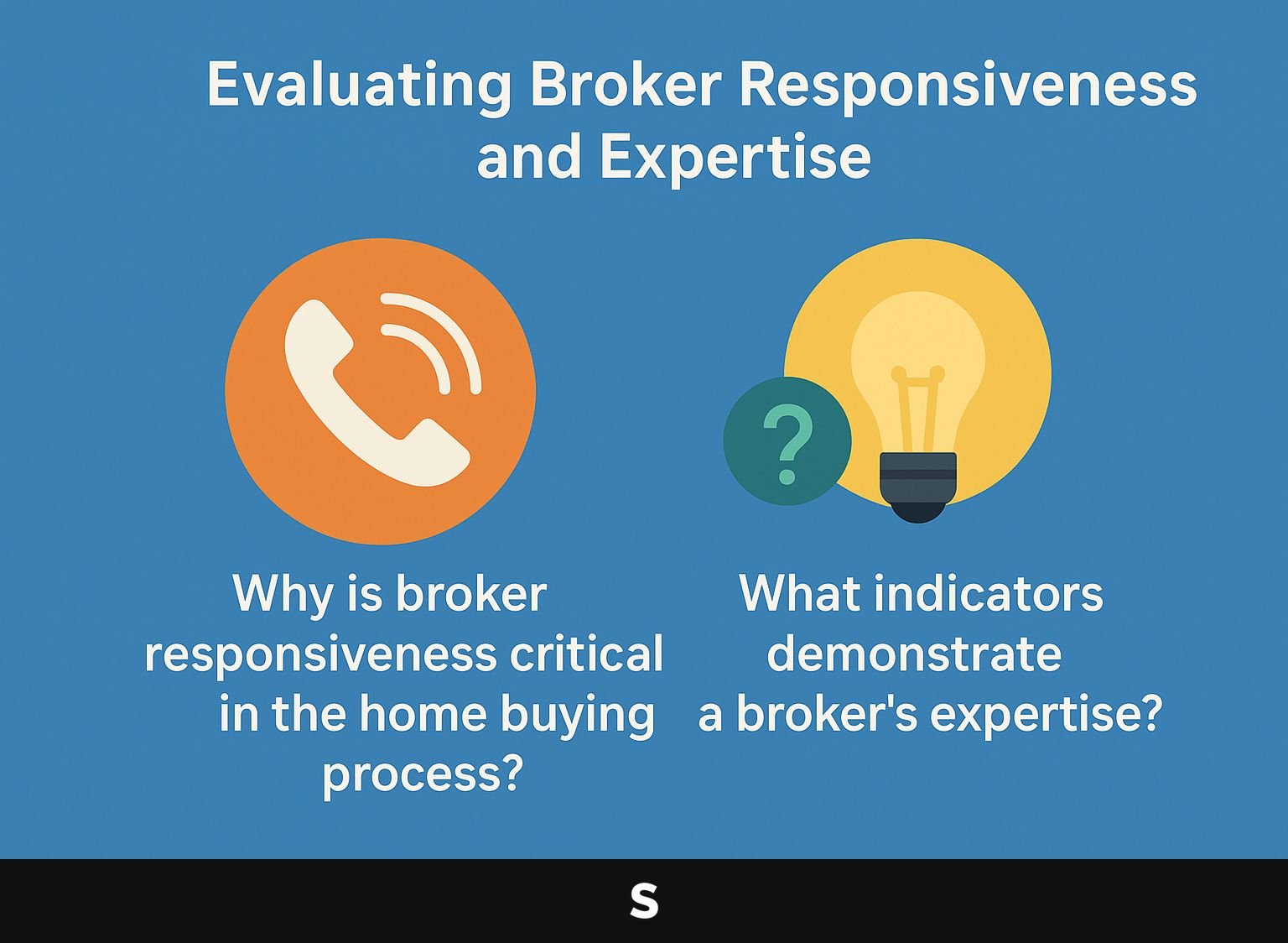
1. Why is broker responsiveness critical in the home buying process?
Quick responses from brokers are important because they help speed up the mortgage process and ease buyer stress during what can be a challenging experience.
To gauge a broker’s responsiveness, start by observing their initial reply time. Email or call them and note how quickly they respond; a quick turnaround can be a positive sign.
Ask about their preferred communication channels-opt for brokers who are flexible and available via phone, email, or messaging apps. Inquire about their typical availability during the week; brokers who communicate their hours openly demonstrate a commitment to accessibility.
Ask for references or reviews that talk about how past clients experienced communication and responsiveness, as this can give useful information.
2. What signs show a broker’s skill?
Signs that a broker is good at their job include their knowledge of the mortgage market, the range of loan options they provide, and their track record of successfully completing deals with clients.
Plus these indicators, consider their professional certifications, such as being a Certified Mortgage Advisor (CMA) or holding a designation with the National Association of Mortgage Brokers (NAMB).
Having over five years of experience is important; brokers with this level of experience usually show a better grasp of market changes and what clients need.
Positive reviews and feedback can indicate how effectively a broker manages complex transactions and communicates with clients, assuring you that you are working with a knowledgeable professional.
Customer Experiences: Real Stories from Homeowners
Real stories from homeowners show useful information about working with mortgage brokers, highlighting the difference these professionals can make.
1. What are common themes in positive broker reviews?
Positive broker reviews often mention clear communication, customized service, and effective handling of the mortgage process, resulting in happy clients.
Many reviews highlight brokers who maintain regular communication through phone calls, emails, and text messages, keeping clients informed about progress at every step.
Brokers often mention service that is specific to each client, concentrating on each person’s financial circumstances and creating solutions based on their requirements. For example, a broker who provides loan options based on a client’s credit score and financial goals can greatly increase trust and satisfaction.
Brokers who make mortgage procedures easy to understand by clearly explaining terms and steps often receive great praise, showing their dedication to helping clients succeed.
2. How do bad experiences affect how people rate brokers later?
Bad experiences can strongly influence how people see brokers later on, often making them more careful and picky when choosing one.
In the brokerage industry, negative reviews can tarnish a firm’s reputation and deter potential clients. Quick, transparent responses to these reviews are essential.
For instance, if a client complains about poor customer service, the broker should address the issue publicly and offer a resolution. Tools like Trustpilot help brokers keep track of reviews and quickly create customized replies.
Implementing regular feedback sessions can help identify pain points before they escalate to negative reviews. By actively managing their online presence, brokers can mitigate damage and maintain trust with potential investors.
Fighting for the Best Rates: Broker Negotiation Tactics
Brokers use different negotiation methods to get the best rates for their clients, using their knowledge of the industry and relationships with lenders.
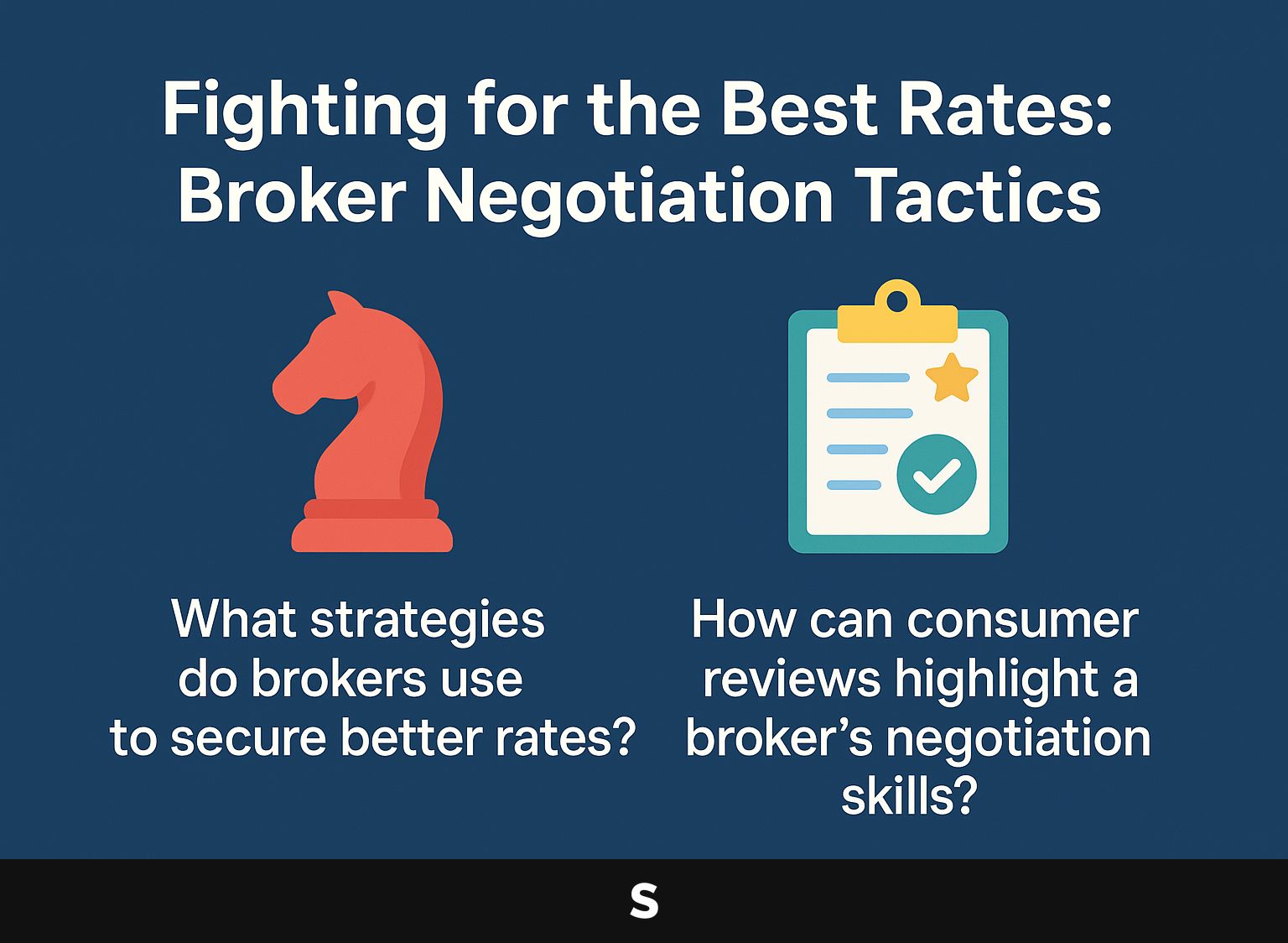
1. What strategies do brokers use to secure better rates?
Brokers use a few methods to secure better rates, like forming strong relationships with lenders, analyzing market trends, and advocating for their clients during negotiations.
Brokers usually use their wide connections and speak with different lenders to find the best financing deals.
For example, they might use tools like Mortgage Coach to show clients rate comparisons side by side. By analyzing market trends and utilizing data from platforms like Zillow, brokers can offer clients informed advice about timing and pricing.
When negotiating, brokers can confidently talk about the client’s financial advantages, like a good credit score, to improve their bargaining position and help clients get the best terms.
2. How can consumer reviews highlight a broker’s negotiation skills?
Consumer reviews often highlight a broker’s negotiation skills by detailing experiences where brokers successfully secured lower rates or favorable terms for their clients.
To analyze reviews effectively, look for specific anecdotes demonstrating negotiation success, such as instances where a broker achieved a significant reduction in fees or favorable contract terms. Pay attention to phrases like “went to bat for me” or “negotiated a deal” that imply advocacy.
Tools like Google Reviews or Trustpilot can give you feedback, while industry-specific forums may have more detailed conversations. Frequent positive comments about negotiation skills show that a person is dependable in this important area.
Final Thoughts on the Role of Reviews in Home Buying
Reviews are important in buying a home because they provide key details that can strongly influence buyer’s choices and their experiences.
1. How can potential buyers use reviews to make better decisions?
Prospective buyers can use reviews by doing careful research, finding brokers with regular positive feedback, and using reviews to guide their questions during first meetings. When picking a broker, create a list using key details from various reviews.
Include criteria such as:
- Responsiveness to inquiries
- Transparency in fees
- User satisfaction with trading platforms
For example, take note if a few reviews mention issues with delayed customer support or unexpected charges. Pay attention to brokers recommended for specific needs like beginner-friendly platforms or advanced trading tools.
This structured method helps you make choices and encourages you to ask relevant questions when you first talk with possible brokers.
2. What new trends are appearing in mortgage brokerage reviews?
Recent updates in mortgage brokerage reviews reveal more online tools, specific feedback formats, and clearer information for consumers familiar with technology.
More people are using online sites, focusing on things like product reviews, how fast companies respond, and experiences customized for personal needs.
For example, brokers might adopt tools like Trustpilot to collect and display consumer reviews transparently. The rise of video testimonials offers a powerful way to convey authenticity, allowing potential buyers to connect with the experiences of others.
This move toward detailed content will probably make buyers look for more specific opinions, concentrating on things like customer service quality and how fast loans are processed.
Frequently Asked Questions
1. What is the importance of mortgage brokerage reviews when buying a home?
Mortgage brokerage reviews give useful information about buying a home and make it easier to understand. They can help you find a reliable and trustworthy broker who can guide you through the complex process of securing a home loan.
2. How can mortgage brokerage reviews simplify the home buying process?
Mortgage brokerage reviews offer detailed information about the experiences of previous clients with a particular broker. This can help you learn more about what they offer, their skills, and how often they succeed, so you can decide with the right information.
3. What should I look for in mortgage brokerage reviews?
When looking at mortgage brokerage reviews, focus on how well the broker communicates, how quickly they respond, their knowledge, and their ability to find unique financing options and secure favorable rates. These factors can greatly impact your home buying experience.
4. How do mortgage brokerage reviews on Spokk.io help brokers?
Spokk.io is a platform that helps brokers get detailed process reviews from their clients. These reviews can help brokers make their services better, gain trust with new clients, and expand their business.
5. Are all mortgage brokerage reviews on Spokk.io positive?
No, Spokk.io provides unbiased and authentic reviews from real clients, so not all reviews will be positive. However, these reviews can help you clearly see what to expect from a particular broker and guide you in making an informed decision.
6. How can I leave a mortgage brokerage review on Spokk.io?
If you have worked with a mortgage broker and want to leave a review on Spokk.io, simply visit the website and search for the broker’s profile. You can then leave a review and share your experience to help other home buyers.
